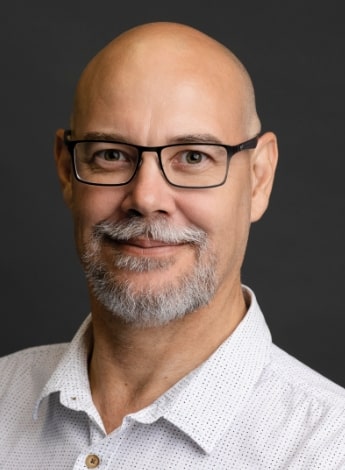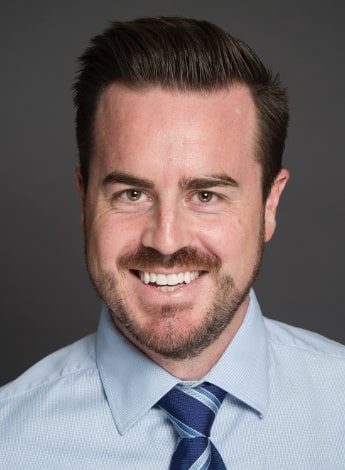
Australian College of Physiotherapists: the next 50 years

Our previous three articles on the history of the Australian College of Physiotherapists covered the creation of the College and its development from 1971 until the present day. Now Darren Beales, FACP, President of the College, and Tom McMillan, FACP, co-Vice-President of the College, discuss plans and aspirations for the future.
In the preceding articles in this series, we have seen how, after a number of years of discussion and planning, the Australian College of Physiotherapists formally emerged 50 years ago.
Its intention was to improve patient care by rewarding clinical excellence beyond that provided by formal postgraduate learning pathways.
In 2005 the pathway to Fellowship of the College underwent considerable change, with a clear ethos to be ‘firmly grounded in adult learning principles to facilitate lifelong learning through self-directed independent study’.
Thank you, Gwendolen Jull, AO FACP, and Patricia Trott, AM FACP, for reminding us of this history.
Barby Singer, FACP, then went on to outline the incredible efforts to modernise Fellowship training programs with the goal of increasing ‘scalability, flexibility, sustainability and equity of access’.
Parallel and central to these efforts has been the initiation of work to align College practices (and the broader career pathway for physiotherapists) with the international standards recognised in the CanMEDS framework.
Thank you, Barby, for providing this insight into the present workings of the College.
Thank you also to all those who have, over more than 50 years, contributed (and continue to contribute) to this pathway to clinical excellence in physiotherapy.
This is a vast number of people, including physiotherapists, non-physiotherapists and the highly dedicated staff of the APA.
Out of the past and present comes a mantra of sorts, a set of principles, which can lead us to the future:
- improved care
- clinical excellence and standards that underpin this
- lifelong adult learning
- scalability, flexibility, sustainability and equity of access.
It is a great honour to be tasked with trying to imagine the future of the College and what it might mean to be a specialist physiotherapist or a Fellow of the College in times to come.
What follows, then, are three aspirations for the College and therefore for the profession.
May they act both as guiding lights to help us navigate and as yardsticks against which to measure ourselves.
Fellows of the College will have a clear and widely recognised role in facilitating health and wellbeing for all individuals and communities in Australia
There are many gaps in care pathways in the Australian healthcare system, which might reasonably be filled by the advancement of care pathways that include specialist physiotherapy services as an integral part of their ideology.

Darren Beales, FACP, is the President of the Australian College of Physiotherapists.
The gaps often align to the needs of people with complex, chronic health conditions.
As specialist musculoskeletal physiotherapists, we confront this daily.
For example, people not improving with musculoskeletal pain in primary care might have their care escalated to surgical review and imaging, despite clear evidence that surgical care and imaging for musculoskeletal complaints are only useful for a minor percentage of people with complex, chronic complaints.
Specialist physiotherapy services are ideally suited to providing a valuable step between primary care and surgical review for many Australians.
Undoubtedly, the same scenario is applicable to all areas of healthcare.
Care pathways that engage specialist physiotherapists are now beginning to emerge (for example, models of care for whiplash in New South Wales).
Similarly, non-clinical Fellows of the College will be more widely recognised as leaders in their respective fields: leaders in clinical research, leaders in policy development and implementation.
As such, these leaders with their clinical counterparts will be engaged in all levels of health service delivery to better the health of our communities.
For example, it is with great pride that we have witnessed the contribution of Fellows of the College to the development of guidelines for the treatment of COVID-19 in acute hospital settings.
We have seen a Fellow engaged as part of the World Health Organization.
We have a Fellow who is the Vice-President of World Physiotherapy.
In the future, Fellows of the College will be sought out for their expertise and asked to contribute to the development and implementation of models of care for all aspects of health in our communities.
Fellowship of the Australian College of Physiotherapists will be universally recognised as a trusted credential of expertise
The APA Physiotherapy Career Pathway Competency Framework, based on the CanMEDS framework, provides a standardised set of expectations for attainment of excellence in the field of physiotherapy.

Tom McMillan, FACP, is co-Vice-President of the Australian College of Physiotherapists.
Attainment of Fellowship is a recognition of this achievement.
Currently, understanding of Fellowship and specialisation is very limited in our communities and even, to be frank, in our own profession.
External recognition is growing.
For example, the emergence of care pathway documentation referring to specialist physiotherapy services is an encouraging development.
Across Australia (particularly in New South Wales, Queensland and Western Australia), compensable bodies are calling on specialist physiotherapists to provide expert level review of clinical cases.
Public hospitals are seeking specialist physiotherapists for clinical lead and screening clinic roles.
Private patients are seeking out specialist physiotherapy input across Australia.
The credential of Fellowship, awarded by the College, provides a formal and trusted endorsement of expertise that external bodies increasingly recognise.
A lot of work is going on across the country to enhance knowledge of what Fellows of the College can add to their communities.
We envisage a time when the recognition of Fellows of the College and specialist physiotherapists will equal that of Fellows in the field of medicine and Fellows of the College and specialist physiotherapists will be recognised across the world as leaders in our profession.
Every physiotherapist will embrace intra-professional referral
Physiotherapists are excellent contributors to multidisciplinary care teams.
We are very good at referring to our medical colleagues and increasingly to our allied health colleagues.
We are not so good at intra-professional referral.
We need case-based learning in entry-level programs and for early career physiotherapists that includes utilisation of specialist physiotherapists, particularly for complex problems.
Models of second opinion, shared care and short bursts of specialist care are emerging.
In our experience, these models of care, when enacted, are a win for the patient, a win for the treating physiotherapist and a win for the specialist physiotherapist.
Expansion of these practices via improved intra-professional referral could revolutionise the way physiotherapy is practised, provide learning and mentoring opportunities and improve connectedness for sole practitioners or those in rural and remote settings.
The Australian College of Physiotherapists is dedicated to realising this future vision.
It requires generational change.
It requires a lot of work and a lot of synergy.
College Fellows, members and our highly dedicated APA staff will together drive this important development in our profession and in our healthcare system.
© Copyright 2024 by Australian Physiotherapy Association. All rights reserved.





